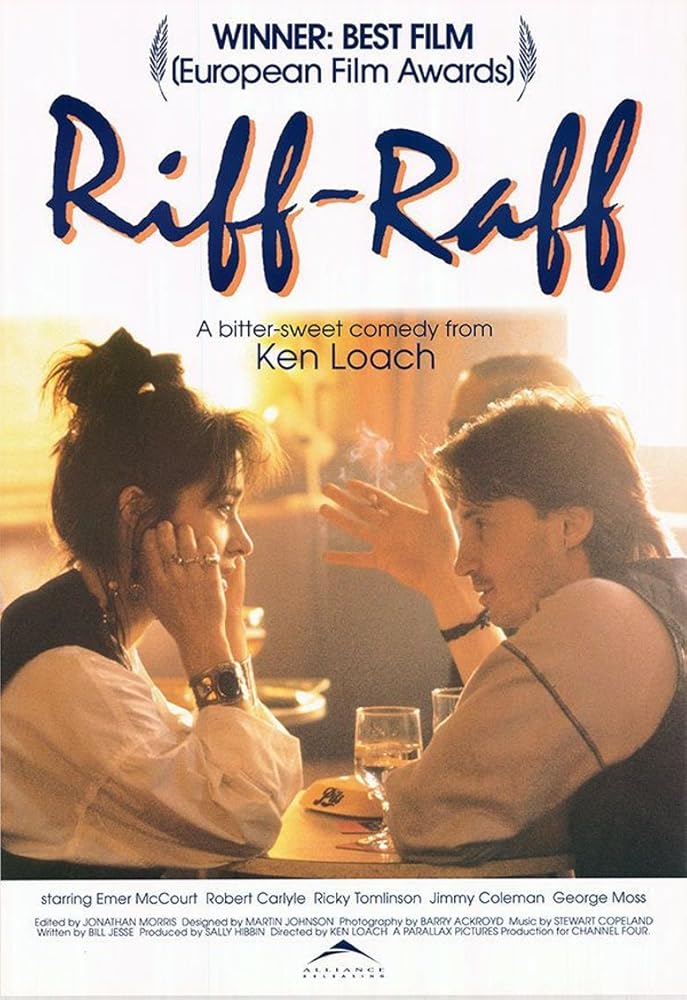
RIFF-RAFF
(director: Ken Loach; screenwriter: Bill Jesse; cinematographer: Barry Ackroyd; editor: Jonathan Morris; music: Stewart Copeland; cast: Robert Carlyle (Steve), Emer McCourt (Susan), Jimmy Coleman (Shem), George Moss (Mo), Ricky Tomlinson (Larry), Dean Perry (Wilf), Garrie J. Lammin (Mick), David Finch (Kevin); Runtime: 95; MPAA Rating: NR; producer: Sally Hibbin; Fine Line Features; 1991-UK-in English with English subtitles)
“Compelling proletarian social consience urban drama set in London.”
Reviewed by Dennis Schwartz
Socialist Ken Loach (“Black Jack”/”Hidden Agenda”/”My Name Is Joe”) directs this compelling proletarian social conscience urban drama set in London, during the Thatcher regime, at a construction site whose labor force is a diverse group of itinerant laborers (Cockneys, Irishmen, Scotsmen, West Indians, and Africans) who work on the cheap and most use false names so they can still be on the dole. It’s humorously and irreverently penned by Bill Jesse, a real-life construction worker who died just before its release.
Stevie (Robert Carlyle) is a young Scotsman just out of Barlinnie prison after serving a sentence for petty theft and is now working as a temp laborer on a non-union North London building site tearing down a closed-down hospital so a luxury hi-rise apartment building can be built. His workplace mates get him a squat in a seedy council block. Stevie finds the handbag of the down on her luck Susan Miles (Emer McCourt) at the building site, and when he returns it to her the two drifters connect. Soon the ditsy aspiring singer from Belfast, into astrology and drugs, moves in with Stevie. The story veers back and forth between their fragile relationship and the colorful workers at the building site (Jimmy Coleman, George Moss, Ricky Tomlinson and Dean Perry) breaking all the work regulations and on the side running scams and also dealing with nests of rats scampering around the site. Things take a serious turn when a black worker accidentally falls to his death due to the lax safety standards.
Filled with a searing realistic story and naturalistic salty dialogue (the film provides English subtitles because the accents are so thick), Loach presents one of his more enjoyable films that still packs his powerful political punch. It gives voice to a growing underclass of people who never benefited from Britain’s prosperity in the eighties and are seldom captured on film in such a carefree way that shows both their good and bad sides.
REVIEWED ON 9/11/2008 GRADE: B+ https://dennisschwartzreviews.com/